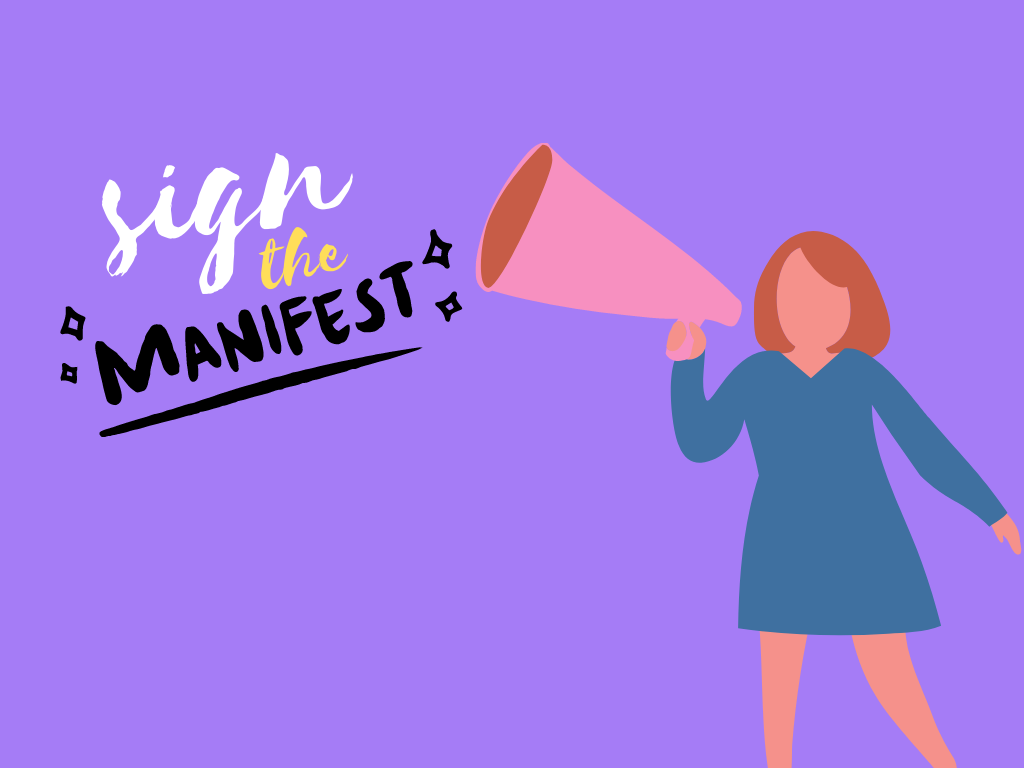There has been little enthusiasm so far for Amnesty’s manifesto on combatting inappropriate behaviour on campus. That’s a pity, says Janna Willems, an Amnesty campaigner.
(Illustration: Marjolein van der Veldt)
Since August 2021, Amnesty has been asking higher education institutions to sign a manifesto (in Dutch) against sexual violence among students. A survey carried out by the human rights organisation has revealed that rape occurs relatively frequently among students and that the majority do not know where to go for help at their institution after experiencing sexual violence.
- What do you think about sexually transgressive behaviour? What experiences do you have? And what do you expect from TU Delft in this area? Take our survey on sexually transgressive behaviour
Recent surveys by the Dutch National Students’ Association and the Inspectorate of Education have confirmed that victims of ‘unsafe situations’ frequently do not report the matter, so problems sometimes remain off the radar.
Workshops and training courses
The manifesto contains six action points. For example, there need to be workshops that students can attend, such as bystander training. And staff should be trained to be ‘trauma-sensitive’ when dealing with issues such as sexual violence. Complaints procedures should also be improved.
Last year, Vrije Universiteit Amsterdam was the first to sign, but since then only nine more institutions have followed. Utrecht University decided not to sign the manifesto, but wants to institute its own action plan. TU Delft has not signed because it does not see any great benefit in workshops for all students. That’s a pity, in the view of Janna Willems, an Amnesty campaigner.
Has the bar been set too high for the institutions with the six action points?
“We get questions like that from the institutions but most of them understand the need these kinds of workshops and training activities. We certainly don’t expect everything to have been settled at the time of signature. It’s only afterwards that we go ahead with the implementation and we can help them with that as well.”
Why have so few institutions signed the manifesto?
“We expect another 10 institutions to sign within a few weeks and then the total will be 20. What is happening isn’t negative: many institutions want to draw up an action plan before signing. So it takes a bit longer, but then they can demonstrate what they are planning to do.”
Isn’t that what the action points in the manifesto are for?“The action points serve as a kind of basis. We are encouraging the institutions to do even more. As an example, HAN University of Applied Sciences did so this week with the ‘Wheel of Student Wellbeing’, and Maastricht University combined its signing ceremony with a conference. These institutions put a lot of thought and effort into things before signing the manifesto, which we see as very positive.”
So there’s no lack of urgency?
“The institutions certainly feel a sense of urgency, especially following the revelations from The Voice and the student surveys that have been published. They’re getting to grips with it and we have the feeling that the issue is being taken seriously. But we also feel that the time is ripe for more signatures because they have had plenty of time to think about things. It’s an important signal for students and the outside world, so we hope that all the institutions will join in before the next academic year.”
HOP, Josefine van Enk
Translation: Taalcentrum-VU
Support
- Have you had an unwanted sexual experience, and do you want to talk about it? Then contact the Sexual Assault Center where specialists are ready to help you. You can chat or phone 0800-0188 anonymously and free of charge.
- It can also help to talk to the people around you.
- TU Delft also offers support. The first person you should contact is always your Academic Counsellor. With your permission, your Academic Counsellor will put you in touch with the Safety and Security Department. They guide students who have been the victim of sexually transgressive behaviour through the process of lodging a police report. Jointly with you, they also see if aftercare is needed.
- The Academic Counsellor can also refer you to the student psychologists. They offer short term guidance of up to three sessions. If you need long term support, they will refer you to the general practitioner or a psychologist outside TU Delft.
- You can always contact your own general practitioner or the Student Healthcare Services (SGZ). Should the general practitioner not be available in the weekend, you can always contact the general medical centre in Delft on 015-2511930. See the website for more information.
- It may help to contact a confidential advisor. Click here for more information.
- As one of 10 students experience sexual intimidation, there is a good chance that you can offer a listening ear to someone. In this case, it is helpful to know how best to respond. The important thing is to stay calm. Staying calm helps the other person tell his or her story. More conversation techniques are available on ‘#metoo gespreksetiquette‘ (in Dutch).
Do you have a question or comment about this article?
redactie@hogeronderwijspersbureau.nl


Comments are closed.